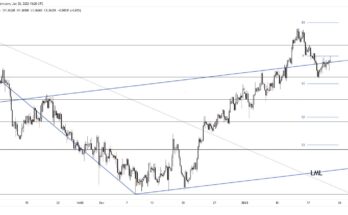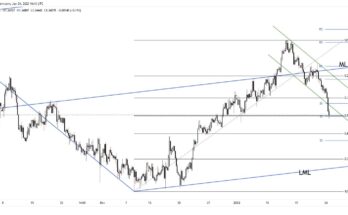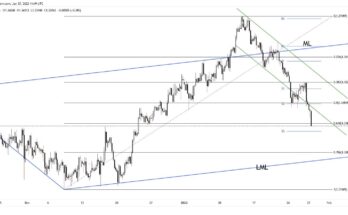Greek bailout reforms were approved by eurozone finance ministers last week, meaning Greece can now obtain a four-month extension to its bailout. The euro was initially buoyed by the news but it turned out not to have a hugely positive impact.
There remain big doubts around some assurances made by the Greek government, these reforms having been outlined in a letter written by finance minister Yanis Varoufakis to Eurogroup President Jeroen Dijsselbloem. The IMF’s Christine Lagarde for one said, “in quite a few areas, however, including perhaps the most important ones, the letter is not conveying clear assurances that the government intends to undertake the reforms envisaged.â€
By Alex Edwards at UKForex, an international money transfer service
The sell-off in the euro continued towards the end of the week. EUR/USD collapsed yesterday as various technical levels were knocked out and sentiment towards the euro turned even more negative. It meant that GBP/EUR pushed even higher, coming close to breaking through 1.38 by the end of the week.
As for GBP/USD, it made a surprise break higher through 1.55 this week. The dollar jumped higher initially as Yellen seemed to indicate on Tuesday that a lift-off in interest rates is possible at any time. The context of the headline wasn’t entirely clear, with Yellen going on to say that the Fed is preparing to consider rate hikes on a meeting-by-meeting basis, but firstly they would be removing the word ‘patient’ when describing its plan in setting rates. This would normally have been USD positive, but her comments were tempered as she finished by saying, “it is important to emphasize that a modification of the forward guidance should not be read as indicating that the committee will necessarily increase the target range in a couple of meetingsâ€.
1.55 wasn’t sustained however and the dollar strengthened come the end of the week, backed by a solid US durable goods orders report. The data showed that orders rose a seasonally adjusted 2.8% in January against expectations for 1.7%, supported by a surge in demand for core capital goods. US prelim GDP data then printed stronger than expected on Friday, further fuelling dollar strength.
The focus for the early part of this week will be on UK PMI data. The data, particularly services PMI will need to be strong for GBP/USD to hold on the 1.54 level. If the number comes in weaker than forecasts, GBP/USD is likely to break lower. US non-farm payrolls are due on Friday – employment numbers have been very strong of late and a print of 200k could well see GBP/USD give up a lot of its gains from last week and make that move back towards the big 1.50 figure.
Meanwhile, a lot of the headlines will be dominated by Greece and the doubts about the new Greek government’s potential austerity reforms. These headlines will most probably continue to weigh on the single currency. Later in the week, the ECB are set to deliver their monetary policy announcement and although no change in either rates or QE is expected, President Draghi is set to sound dovish in his accompanying press conference. However, the fact that markets have a dovish rhetoric priced in to the value of the euro leaves the door open to a potential bounce back should he surprise a sound a little more positive or less dovish than usual.
In this week’s podcast, we cover Yellen & the hike, AUD & CAD rate previews, Jobless claims vs. USD & Greek back burner
Subscribe to our iTunes page



